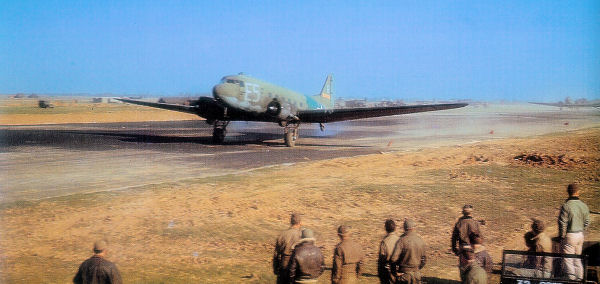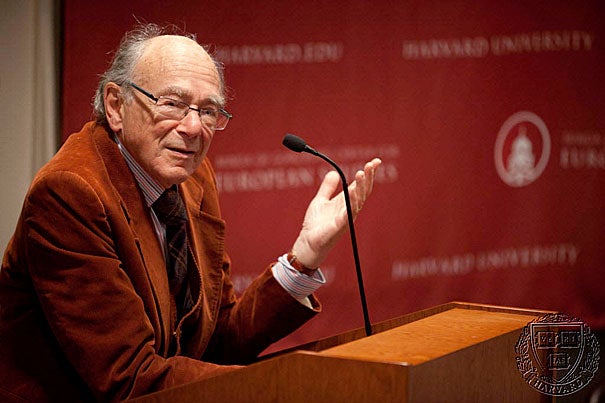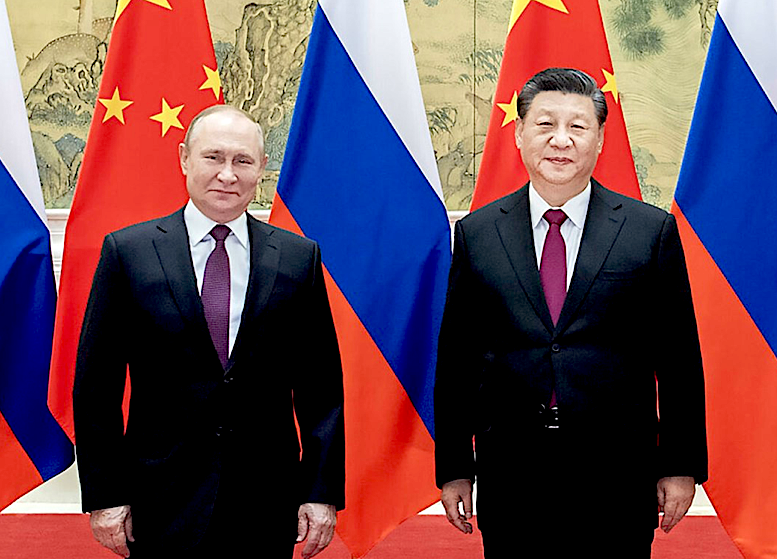Stanley Hoffmann doesn’t mention “multipolarity” in his book—maybe the term wasn’t yet in use—but it is precisely the world he was telling Americans about back in 1978 and that is today coming to pass.
By Patrick Lawrence
Special to Consortium News

In the second half of the 1970s, the task for those not busy flinching from the U.S. defeat in Vietnam was to understand why America failed in Indochina and the implications of this failure—how, notably, America should conduct itself among what then came to 170 sovereign nations. We got it wrong, the honest among us said. Now what do we do?
I have always counted those years an exceptional passage in the American story. Self-examination of that kind does not come often to our republic. The only other such interim I can recall, a much briefer break from our incessantly shrill triumphalism, followed the September 11, 2001, attacks in New York and Washington. Then, too, a few of us asked similar questions. Why? What had we done? What do we need to do differently?
Ronald Reagan extinguished the spirit of honest inquiry that characterized the Carter years with his recasting of Americans as the valiant victims of the Vietnam episode. Another of our stupider presidents, George W. Bush, did the same with his “Axis of Evil” speech before Congress, his first State of the Union, on January 29, 2002.
This is how Americans are discouraged from thinking. And now we are called upon again to pull aside the veil of ignorance our leadership draws across our faces in times of crisis. Let us think about Ukraine and what is truly at issue beyond the propaganda barrage and Washington’s maneuvering to frame Moscow as somehow responsible for the U.S. advance toward the Russian Federation’s borders.
One of the important books to come out of the post–Vietnam period was written by a revered Harvard scholar named Stanley Hoffmann. He published Primacy or World Order: American Foreign Policy Since the Cold War in 1978. How well I recall buying this volume in a Manhattan bookshop on a sunny June afternoon. How well I recall a New York Times reviewer’s subtle attempt to discredit the book—subtle because Hoffmann was too prominent a figure to denounce directly.
Hoffmann argued that America faced exactly the choice his title implied. It could continue to insist that global hegemony was its providential destiny and mounting a succession of ideologically driven crusades was its responsibility. Or it could turn, with Vietnam behind it, to what Hoffmann called “a policy of world order.”
It was one or the other. I have ever since found this binary of use.
Here are a few pithy passages, selected from many deserving of quotation:
“… the demands of world order entail a painful process of discovery for many Americans. They will have to realize that others do not share all our values and practices and that the world is not a field in which we can go and apply our preferred policies and techniques with impunity….”
And:
“Every aspect of American foreign policy is part of the problem of world order…. If the biggest world problem is how to produce order out of heterogeneity, harmony out of cacophony, the biggest American problem is how to devise a policy capable of receiving domestic support, yet avoid the illusion that our idea of world order is world order that the United States can not only contribute to it but actually shape it. “Leadership without hegemony” is both a good motto and a slightly tricky one for a country that likes to think of itself as a leader, not a hegemonic power…”
And:
“For if we do not remember we shall reproduce. We were determined not to “lose” Vietnam the way we had “lost” China… And yet we had not learned the really significant lessons from our China experience and repeated the same mistakes in Vietnam. We could encapsulate them in one phrase: the neglect of local circumstances.”
There are things in Primacy and World Order warranting objection. Hoffmann, along with the Cold Warriors, insisted that America was beset with enemies in a fundamentally hostile world. He was cavalierly dismissive of what he put down as the opportunism of those nations who chose nonalignment in the U.S.–Soviet conflict that defined his time. These are poor readings on both counts.
But the many truths in Hoffmann’s book as to what America faced in the post–Vietnam era far outweigh what I respectfully count his mistakes.
A Different World

U.S. C-47 of 62d Troop Carrier Squadron, 314th Troop Carrier Group, RAF Saltby, England, 1944 (US Army Air Force)
The world after the 1945 victories was simply not as America expected as it assumed global leadership from the European powers. The scores of new nations that came into being by way of decolonization produced new aspirations articulated in as many voices. The entire paradigm was wrong: There was no managing the world as the English and French once had. “Global leadership” in the old mode turned out to be an anachronism.
A “world order policy” as Hoffmann so well named it was going to be a very complicated affair. For postwar America, this would mean not doing various things as much as it would mean doing anything new. Among much else, he wrote, there was the imperative “to refrain from mechanically applying disembodied principles.” And then as now, policy cliques in Washington prove not very good at refraining.
Hoffmann doesn’t mention “multipolarity” in his book—maybe the term wasn’t yet in use—but it is precisely the world he was telling Americans about. No one—not America, not anyone else—could grandly proclaim a world order, he argued. It had to come of its own, one international question or conflict at a time. Those “local circumstances” he made much of would always have to be considered.
“World order is not a matter of architectural efforts,” Hoffmann wrote. “It will not issue from a simple design the way a house seems to come out of an architectural blueprint.” World order, in other words, is a process, not a policy.
It is 44 years since Hoffmann brought out Primacy or World Order. To an extent I wish weren’t so, it remains all too pertinent. If there is one way to understand the crisis in Ukraine, it is as a confrontation between a nation insistent on defending its primacy (even as it collapses) and a nation insistent on a world order of the kind Hoffmann understood to be essential if greater and lesser powers were to achieve that harmony amid cacophony he saw as humanity’s fate.
Am I suggesting that Ukraine is the ground on which an empire faces an anti-imperialist power? Absolutely. Until Americans dispense with their pretenses and accept these terms they stand no chance of understanding themselves and what their leaders do in their name.
Moscow’s Demands
Consider the demands Moscow presented to Washington and NATO in the draft treaties it presented to each last December. Briefly, these are guarantees (written this time) that the Atlantic alliance will not advance further east and Ukraine never be admitted as a member; that NATO won’t station missiles on Russia’s border; that forward deployments of NATO troops in Eastern Europe be rolled back; that the U.S., NATO, and the European powers sign a new security pact with Russia, and that the treaty on intermediate-range missiles the U.S. dropped two years ago be restored.
Tell me, please, if this is anything other than a plan for a world order of the sort Stanley Hoffmann advised us decades ago was essential to global peace. Tell me if this isn’t a nation insisting that an imperial power bent on primacy step back in the name of global stability.
Tell me, in other words, where the constantly alleged aggression lies in the draft documents Russia sent Westward two months ago.
In the interest of the fullest understanding of the Ukraine crisis, we cannot omit consideration of the joint statement Xi Jinping and Vladimir Putin made public on Feb. 4, the eve of the Winter Olympics in Beijing. There is no mistaking the Chinese and Russian presidents’ intent in this document. They did more, much more, than declare a partnership with “no limits.” Together they have stood up for a new world order that is, once again, of the kind Hoffmann explained was on its way in 1978.
The Kremlin’s translation of the Joint Statement on International Relations Entering a New Era, to abridge its lengthy title, is here and not to be missed. A colleague and I have written of it elsewhere; Ben Norton wrote another analysis that appeared in Multipolarista and was republished in Consortium News.
“Today the world is going through momentous changes, and humanity is entering a new era of rapid development and profound transformation,” the document reads in it opening section. “There is increasing interrelation and interdependence between the States; a trend has emerged toward redistribution of power in the world.”
There you have it. It is precisely this trend the U.S. is now caught up in resisting ever more strenuously. This, at bottom, is what the Ukraine crisis is about.
Presciently—the entire book is prescient—Hoffmann predicted that if the U.S. continued to insist on defending its post–1945 primacy, isolation would inevitably result.
I could not but think of this over the weekend, as new rounds of emergency diplomacy began between Moscow and European capitals.
Chief among these was the telephone call Sunday between Emmanuel Macron and Putin, at the French president’s request. The two committed to reestablish a ceasefire along the line of contact in Ukraine, and, more significantly, to resume negotiations on a lasting settlement via the Normandy Format, which brings together the leaders of France, Germany, Russia, and Ukraine.
Jean–Yves Le Drian, Macron’s foreign minister, is now scheduled to meet Sergei Lavrov, the Russian FM, in coming days. At the Munich Security Conference, German Chancellor Olaf Scholz told an interviewer (in his best-effort English), “We are not willing to threaten Russia, to fight against Russia with extreme activities. The development of Russia is a question [for] Russian society.”
Which country is absent from these doings?
I detect in Europe’s efforts—pursued cautiously, as the Europeans typically proceed with the Americans—the impulse to act autonomously and in their own interests toward a Ukraine settlement. This is what I mean by creeping isolation, and what Hoffmann meant all those years ago—isolation not from those deemed adversaries, but from friends.
Hoffmann was Austrian by birth but French by upbringing and education. He fled to southern France with his mother in June 1940, two days before the Wehrmacht took Paris. He went on to profess at Harvard in a variety of disciplines—foreign affairs, international law, European studies, political science—for more than 50 years. He died at 86 in 2015.
I do not doubt his remarkable life informed his professional judgments, notably his working assumption of the hostile world beyond his adopted country’s shores. Equally, his multinational background surely had much to do with his thoughts on America’s need for “a world order policy.”
Later in life Hoffmann left off writing about U.S. foreign policy and returned to European Studies, his native ground. “Being a permanent denouncer of recurrent mistakes is, after a while, no fun,” he wrote.
Patrick Lawrence, a correspondent abroad for many years, chiefly for the International Herald Tribune, is a columnist, essayist, author and lecturer. His most recent book is Time No Longer: Americans After the American Century. Follow him on Twitter @thefloutist. His web site is Patrick Lawrence. Support his work via his Patreon site.



So far it is all talk and aside from minor skirmishes, no noteworthy fighting involving tanks, missiles, attack bombers, submarines and battle cruisers and aircraft carriers: so far. However, there is a time limit. And I suspect time is ticking away, as it always does. Humans, unfortunately, as designed to war with each other and themselves. History always repeats itself. This time, however, the first nuke decides the species’ outcome.
“and that the treaty on intermediate-range missiles the U.S. dropped two years ago be restored.”
It is highly unlikely that John Bolton ever supported this treaty. And I am strengthened in this belief by what he wrote in his recent book, The Room Where it Happened (p159):
“Since my days in George W. Bush’s Administration, I had wanted to extricate the United States from the INF (Intermediate-Range Nuclear Forces) Treaty.”
This is long before we heard anything about alleged Russian violations that the Trump and Obama administrations did nothing to resolve.
The Trump administration, in which Bolton served for a time, acted in very bad faith on this.
Getting out of a treaty by first claiming that the other side is violating it is rather like trying to steal an election by first claiming that the other side has stolen it and that you are merely trying to ‘stop the steal’.
I agree with Andrew Thomas below.
This article, unfortunately, gives credence to notions of “international management” that are but window dressing to the real story: a Mil/Ind/Wall Street racket. The “theories” and other highfalutin excuses evolve over time; the trillions in profits remain consistent.
I was privileged to meet Stanley Hoffman In Paris and learned a great deal from him. He was a multicultural person himself as Patrick Lawrence mentions in this article and thus did not share the prejudices of the US ruling class. Putin’s unacceptable decision last night can however be understood as a response to US hubris for 30 years. Humiliating a powerful nation temporarily down is never a good policy. What the Germans called the “Versailler Diktat” after WWI greatly contributed to the rise of Hitler. Even Yeltsin the darling of the West blamed Clinton for the enlargement of NATO. Russia was very weak then so it was easy not to take anything Russians said into account. All this had been announced by George Kennan in a NY Times article entitled “A fateful error”. (February 5, 1997).
Excerpt: “Such a decision may be expected to inflame the nationalistic, anti-Western and militaristic tendencies in Russian opinion; to have an adverse effect on the development of Russian democracy; to restore the atmosphere of the cold war to East-West relations, and to impel Russian foreign policy in directions decidedly not to our liking.” Kennan was not pro-Russian, he was the father of the containment doctrine but like Hoffmann he could see clearly what hubris could lead to.
A very timely revisit and hommage paid to that I.R. giant Hoffmann by Lawrence. It shows America has always had such sane if powerless voices in their midst quite impressively but sadly ineffectually. Your gems here are : 1) “world order, in other words, is a process, not a policy” and 2) ” Until Americans dispense with their pretenses and accept these terms they stand no chance of understanding themselves and what their leaders do in their name” ; so true, could have come from Hoffmann himself !
I have stopped understanding why the US has continued to insist that the Vietnam/Laos war was a ‘defeat’. Unless the blob expected that it would so destroy the opposition by its savage destruction of their societies, that they could just leave militarily without any consequences, the whole catastrophe was a victory, as the blob would see it. How much US territory was destroyed? None. We lost 57,000+ servicemen. The Vietnamese and Laotian losses were staggering- 2 million or more. Vietnam’s previous society-agrarian- was utterly destroyed. The new urbanized Vietnam is a labor market that is incredibly cheap, and which makes possible very cheap goods in the US, and, actually importantly, enormous profits for multinationals. No ‘communist’ government would ever market itself to the world as a source of cheap labor. The US WON in Southeast Asia. It just isn’t, how shall I say this, good PR to admit to people who still remember the loved ones they lost that that was the whole idea from the beginning. Much less the still-living veterans of that war who might have thought they were fighting for something a little more important than corporate profits. At least, more important to them.
Thank you Patrick
The marginalized voices will prevail. Hoping there is an ear to hear.
How to stop the fasces at foot is the gig. I’m so crestfallen I don’t know where to start.